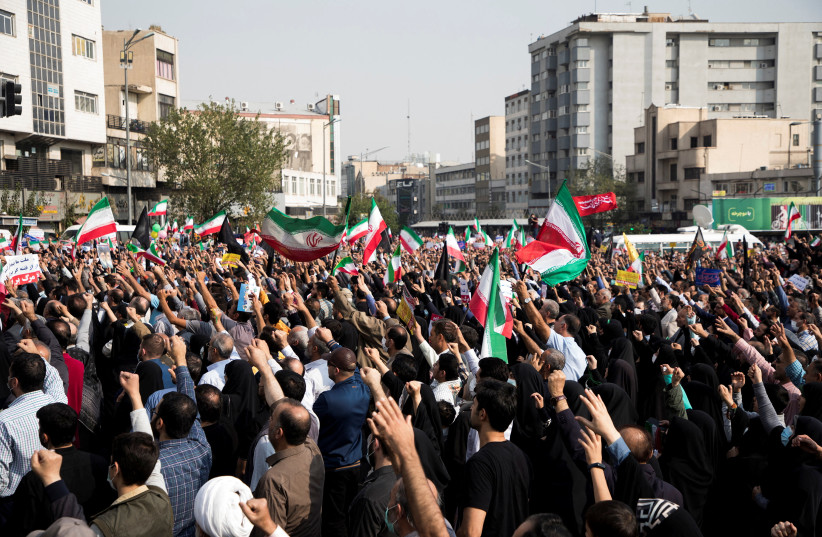Protesters faced off with security forces in Iran's restive southeast on Friday to mark the anniversary of a Sept. 30, 2022, crackdown by security forces known as "Bloody Friday," according to rights groups and social media videos.
Videos posted on the Z platform by the Iran Human Rights (IHR) group showed marchers confronting security forces in Zahedan, capital of the southeastern Sistan-Baluchistan province, as apparent sounds of shooting are heard.
IHR and the Baluch rights group Hal Vash said at least 23 people had been injured. Reuters could not verify the report or the authenticity of the videos.
But Zahedan's prosecutor said the city was calm and videos showing the injured were old, the state news agency IRNA reported. The semi-official news agency Tasnim said police had used tear gas to disperse "a few people who had gathered and were throwing rocks at security forces."
In the Sept. 30 crackdown, security forces killed at least 66 people, according to Amnesty International. Authorities blamed protesters, angered by the alleged rape of a girl from the Baluch ethnic minority by a police commander, for provoking the clashes.

Crackdown in Iran
The Net monitor Netblocks reported a "significant disruption" to the internet in Zahedan on Friday, saying authorities had "systematically shut down telecoms to suppress weekly anti-government protests."
Molavi Abdolhamid, Iran's most prominent Sunni cleric and a long-time critic of Tehran's Shi'ite leaders, demanded justice for the victims of the Sept. 30 crackdown.
"The people's demand in the past year has been that those who committed this crime be brought to Islamic justice ... but judges don't have independence in Iran," Abdolhamid said in a sermon posted online
Sistan-Baluchistan, which borders Pakistan and Afghanistan, is one of Iran's poorest provinces and a major drug trafficking route.
Human rights groups say the Baluch minority, estimated to number up to 2 million people, has faced discrimination and repression for decades. Iran says developing the region and resolving its problems is a "serious issue" for the government.
Zahedan has also been the scene of weekly protests since a wave of nationwide unrest triggered last year by the death of a young Kurdish woman in the custody of morality police that shook the Islamic Republic.
